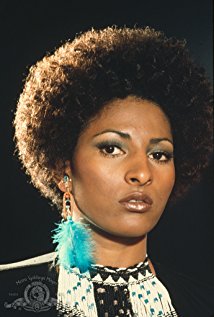Pam Grier is known to the world as an iconic African-American actress. Many know her from Blaxploitation films such as Foxy Brown, but she has contributed much more to the African-American society than just entertainment. Grier endured many hardships during her childhood and adult life that led her to become the strong and inspiring feminist that she is today.
At the age of 6, Grier was raped by two older boys when she was left alone at her Aunt’s home. In an interview given while on her book tour, Pam spoke briefly on the incident saying, “It took so long to deal with the pain of that… You try to deal with it, but you never really get over it. And not just me; my family endured so much guilt and anger that something like that happened to me.” Grier was then a victim of date rape at the age of 18. She said that she had not told anyone about either of these incidents until she wrote the memoir. When speaking about her decision to reveal what happened to her she said, “I wanted others out there to understand the emotional trauma that is involved in sexual aggression and abuse and that not all of us get over it or even survive the abuse. I have that opportunity to speak about this as the icon—the object and let others know that in spite of it all, I am still here.”
In 1988 Grier was diagnosed with stage-four cervical cancer. In an interview, Grier states, “They couldn’t operate or start treatment for another six weeks… They gave me only 16-18 months to live and was told to start preparing for treatment and to organize my will.” Grier says that she coped with her diagnosis “minute to minute” and that her recovery was possible through the combination of chemotherapy and her doctor’s recommendation of a Chinese herbalist who prescribed her “herbs and tinctures.”
Despite all of the trials and tribulations that Grier endured, she persevered and used each experience as a teaching lesson. She fought from the beginning of her career for the independence and free expression of women. In another interview, Grier states, “And what the (feminist) movement was saying was to be independent on your own. And I realized that is what I was going to have to do, no matter what trauma went on in my life. Women could still survive and they must have independence and not be co-dependent, which is what society was teaching women to be”
You can follow this link to read more about her life.
